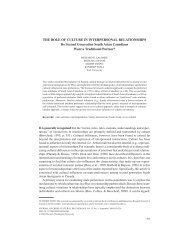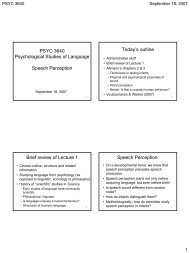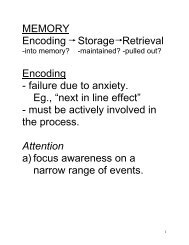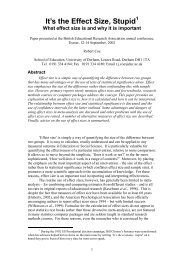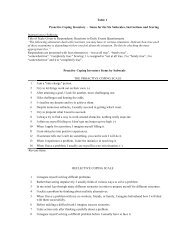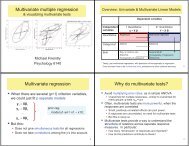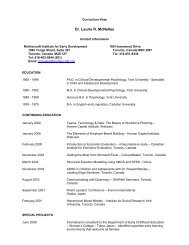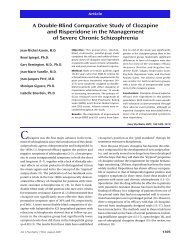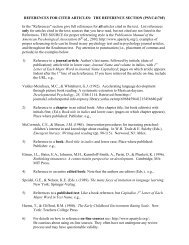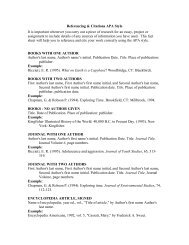The Drama of the Gifted Child (The Search for the True Self)
The Drama of the Gifted Child (The Search for the True Self)
The Drama of the Gifted Child (The Search for the True Self)
You also want an ePaper? Increase the reach of your titles
YUMPU automatically turns print PDFs into web optimized ePapers that Google loves.
health, youth, or loved ones, and although <strong>the</strong>y mourn<br />
<strong>the</strong>m <strong>the</strong>y do so without depression. In contrast, <strong>the</strong>re are<br />
those with great gifts, <strong>of</strong>ten precisely <strong>the</strong> most gifted, who<br />
suffer from severe depression. One is free from depression<br />
when self-esteem is based on <strong>the</strong> au<strong>the</strong>nticity <strong>of</strong> one's own<br />
feelings and not on <strong>the</strong> possession <strong>of</strong> certain qualities.<br />
<strong>The</strong> collapse <strong>of</strong> self-esteem in a "grandiose" person will<br />
show clearly how precariously that self-esteem had been<br />
hanging in <strong>the</strong> air—"hanging from a balloon," a female<br />
patient once dreamed. That balloon flew up very high in a<br />
good wind but <strong>the</strong>n suddenly got a hole and soon lay like a<br />
little rag on <strong>the</strong> ground.. .. For nothing genuine that could<br />
have given strength and support later on had even been<br />
developed.<br />
<strong>The</strong> "grandiose" person's partners (including sexual partners)<br />
are also narcissistically ca<strong>the</strong>cted. O<strong>the</strong>rs are <strong>the</strong>re<br />
to admire him, and he himself is constantly occupied, body<br />
and soul, with gaining that admiration. This is how his<br />
torturing dependence shows itself. <strong>The</strong> childhood trauma<br />
is repeated: he is always <strong>the</strong> child whom his mo<strong>the</strong>r admires,<br />
but at <strong>the</strong> same time he senses that so long as it is his<br />
qualities that are being admired, he is not loved <strong>for</strong> <strong>the</strong><br />
person he really is at any given time. In <strong>the</strong> parents' feelings,<br />
dangerously close to pride in <strong>the</strong>ir child, shame is concealed—lest<br />
he should fail to fulfill <strong>the</strong>ir expectations.<br />
In a field study conducted at Chestnut Lodge, Maryland,<br />
in 1954, <strong>the</strong> family backgrounds <strong>of</strong> twelve patients suffering<br />
from manic-depressive psychoses were examined. <strong>The</strong> results<br />
strongly confirm <strong>the</strong> conclusions I have reached, by<br />
o<strong>the</strong>r means, about <strong>the</strong> etiology <strong>of</strong> depression, and, I believe,<br />
<strong>of</strong> narcissistic disturbances as a whole.<br />
All <strong>the</strong> patients came from families who were socially<br />
isolated and felt <strong>the</strong>mselves to be too little respected in <strong>the</strong>ir<br />
39



